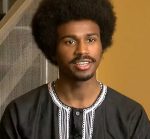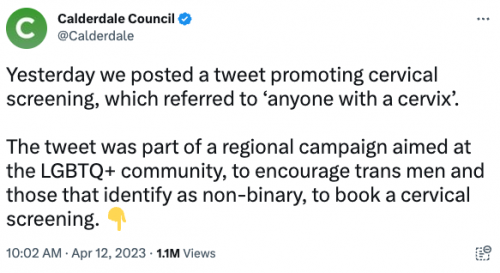Conservatives like to dismiss Diversity, Equity, and Inclusion statements as empty posturing and virtue signaling, as the politicization of science, as discrimination against conservative points of view. I would counter that by saying that they work.
Case in point: UCLA didn’t hire a professor, Yoel Inbar, in part because grad students pointed out that he didn’t support DEI. This annoyed Matt Yglesias, who wrote:
Guy says DEI statements as a hiring tool is just way to screen candidates for “an allegiance to a certain set of beliefs.”
Grad students pen letter saying that shows he shouldn’t be hired since he doesn’t pledge allegiance to the right beliefs.
That “certain set of beliefs” is the idea that we should respect all of our students, and give every one an equal opportunity to succeed. (I don’t know what happened to Yglesias’s brain, I think he has a terminal case of centrism.)
Inbar’s case was well-researched by the students, and they responded with a lengthy letter documenting his inadequacies. Inbar has a podcast with 101 episodes in which “he discusses various topics relating to current events in academia, including but not limited to: diversity statements, anti-racism in psychological organizations, sexism and racism on college campuses, freedom of speech, polarization, and conservatism in psychology.” Isn’t that nice? He provided a wealth of data, the data was evaluated, and his proposal was rejected. Evidence-based scientific reasoning! Exactly what we want!
Most concerning to us as students is Dr. Inbar’s opposition to institutions endorsing positions on sociopolitical issues he has deemed “contentious” or “controversial.” In particular, he takes a strong stance against promoting DEI initiatives through the use of diversity statements and DEI criterion to evaluate research. He also takes a firm position against the use of diversity statements as a tool in the hiring process, and specifically criticizes their use in the University of California system’s faculty application process. In episode 15, he remarks that his “skepticism about these [diversity statements] is they sort of seem like administrator value signaling. It is not clear what good they do, how they’re going to be used…” He continues, “to lots of people on the left, diversity is such an obviously positive thing,” and says that the left fails to acknowledge that these statements “[signal] an allegiance to a certain set of beliefs.” Rather than recognizing the value of DEI initiatives to improve representation and inclusion of marginalized scholars, he casts valuing diversity, equity, and inclusion as uniquely “liberal” values reflective of ideological bias. These comments frame diversity statements as a threat to ideological diversity, and reflect a lack of prioritization of the needs and experiences of historically marginalized individuals across the lines of race, class, gender, sexuality, and ability. In contrast, our institution’s position on this issue is unequivocal: page one of the UCLA Office of Equity, Diversity, and Inclusion FAQ proclaims “Equity, diversity, and inclusion are integral to how the University of California conceives of “merit.”
So here’s this guy who opposes a key value promoted by the university, the need “to improve representation and inclusion of marginalized scholars,” and he didn’t get hired. Are we supposed to hire people who oppose representation and inclusion?
Inbar did not do well in his on-campus interview, either.
Our concerns were deepened after the graduate student meeting with Dr. Inbar on Monday, January 23rd. During this meeting—which traditionally takes the shape of graduate students asking questions and interviewing faculty candidates—he initially prioritized asking us questions about the Psychology Department and life as graduate students, which would presumably inform his decision on whether to accept a job offer from our program. We interjected to reframe the discussion and ask pointed questions about his past and prospective efforts in advocating for diversity, equity, and inclusion efforts both in mentorship and in his line of research. To most of us in the room, his answers to these questions were less than satisfactory, and some responses were outright disconcerting. For example, he responded by indicating that his “work does not really deal with identity, so these issues don’t come up for [him] in a research context.”
As Dr. Inbar studies issues of morality, social attitudes, and political ideology, including how moral psychology shapes prejudice (e.g., Inbar et al., 2009; Inbar et al., 2012), it was deeply troubling to hear that he does not believe identity (i.e., individual background as it pertains to race, gender, sexuality, class, or ability) has bearing on these research questions. It is our perspective that considerations of identity cannot accurately be disentangled from the study of prejudice and moral behavior, and that disseminating these findings requires a high level of sensitivity to how results might be misrepresented or misunderstood given real-world sociopolitical conditions.
Wow. He studies “morality, social attitudes, and political ideology,” but he doesn’t think identity is relevant to his work. OK, man, you don’t get the job, and further, that calls into the question the value of all your published work.
This is exactly what job applications and interviews are supposed to do, screen applicants to determine whether they are good candidates for a position. We also want students to contribute to the decision — every time we have a job candidate on my campus, I announce it in my classes and tell them that we truly, honestly want their input. If they don’t think the person is someone they’d want teaching them, say so! We don’t usually expect a detailed four-page analysis that required research into the papers and podcasts of the candidate, but that is an impressive effort.
Of course, now the media are irate that Students Pressured University Not To Hire Professor Who Questioned ‘Diversity’ Statements
. Pressured? No. The students did as requested and as they were supposed to do and evaluated the quality of a candidate and made a recommendation. That’s going to be the message everywhere, though, and they seem to be unaware of the fact that they are effectively poisoning his job search. If he were desperate enough to apply to UMM, for instance, his notoriety means he wouldn’t get past the initial screening of applications. Like we’d want to hire someone at our minority-serving institution who thinks diversity is a waste of time.
On the other hand, he’ll be greeted with open arms at the University of Austin.










